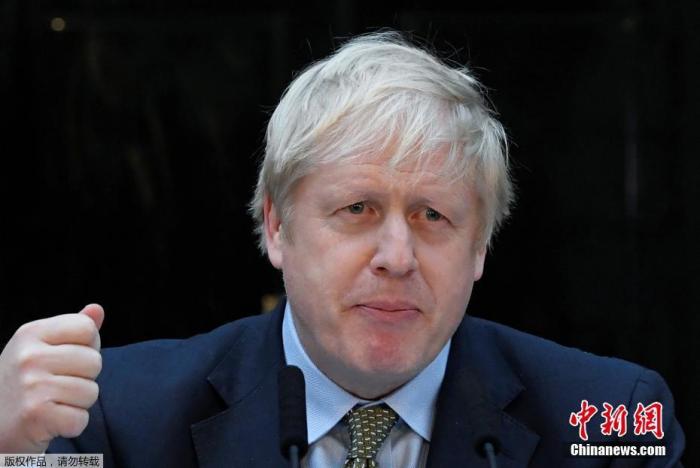(Financial World) The first anniversary of "Brexit", the UK wants to use CPTPP to find a way out?
China News Agency, Beijing, February 1st (Liu Liang) Just after the first anniversary of the formal "Brexit", the UK set its sights on the Asia-Pacific.
The British government recently announced that it will formally apply to join the "Comprehensive and Progressive Trans-Pacific Partnership Agreement" (CPTPP) on February 1, in order to seek to expand its economic and trade "friend circle."
"One year after leaving the European Union, we are establishing a new partnership, which will bring huge economic benefits to the British people." British Prime Minister Johnson said in a statement that the application to join the CPTPP shows that the United Kingdom and its partners around the world are in the best position. The ambition of developing trade under good conditions and becoming a champion of global free trade.
Data map: British Prime Minister Boris Johnson.
The CPTPP, jointly signed by 11 countries, came into effect on December 30, 2018.
The 11 member states are: Japan, Canada, Australia, Chile, New Zealand, Singapore, Brunei, Malaysia, Vietnam, Mexico and Peru.
The agreement covers a population of 498 million, and the total gross domestic product of the member states accounts for about 13% of the global economy.
The main purpose of CPTPP is to reduce trade tariffs between member countries, including the cancellation or reduction of 95% of the commitment to import costs.
At the same time, member states are obliged to cooperate in food standards and other regulations.
Chen Fengying, a researcher at the China Institute of Modern International Relations, said in an interview with a reporter from China News Agency that CPTPP is significantly different from the EU.
CPTPP does not involve deep political integration, therefore, member states do not need to have the same regulations and standards.
In contrast, this is much looser than the EU's arrangements with its member states.
In Chen Fengying's view, it is not accidental that the United Kingdom applied to join the CPTPP.
As early as last year when negotiations with the EU reached a deadlock, the UK had already begun to make emergency plans for the worst case of a "no-deal Brexit".
When talking about why the UK focused on the CPTPP, she said that CPTPP is mostly composed of Asia-Pacific countries, and the growth potential of the Asia-Pacific market or economy is obviously more attractive to the UK than Europe.
Ding Chun, director of the Center for European Studies at Fudan University, also said that Britain’s participation in the CPTPP is in fact seeking a way out for itself, avoiding the marginalization of trade after “Brexit”, in order to make up for the potential losses caused by “Brexit”. It is also in line with its "Global Britain" strategy and its consistent free trade philosophy.
It also shows that the UK recognizes that the Asia-Pacific economic circle is the center of gravity and potential of the future world economy.
In recent years, the UK and CPTPP members have had close trade exchanges.
According to data from the Department of International Trade of the United Kingdom, the trade volume between the United Kingdom and CPTPP members will reach 113 billion pounds in 2020, an annual growth rate of 8% since 2016.
Regarding the prospects of Britain joining the CPTPP, analysts also gave different views.
The advantage is that after joining CPTPP, the UK can enjoy lower industry tariffs; CPTPP may also provide business people with faster and cheaper visas.
In addition, investors from CPTPP member states can receive the same treatment when investing in projects in other member states.
However, some analysis pointed out that in practice, short-term gains may be insignificant for British businesses and households.
On the one hand, the UK has reached trade agreements with most countries in the CPTPP.
On the other hand, CPTPP countries only account for a small portion of Britain’s exports to the EU.
Britain’s participation in the CPTPP is also expected to face domestic resistance.
Reuters reported that the British government will publish an analysis of the economic impact of joining the CPTPP after it has formally requested to join the CPTPP, which runs counter to the earlier promise that the analysis will be published before the application.
Partisans in the United Kingdom believe that the decision to apply to join the CPTPP is very important and cannot be passed without the knowledge or consent of the voters.
(Finish)

